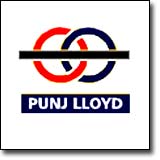PSL Ltd. - Manufacturing Base In USA
Leading pipe manufacturer PSL Holdings (PSL) is planning to have a manufacturing base in the US. The company is in talks with a US company to set up an equal joint venture for manufacturing high grade pipes, which finds application in the field of oil and gas.
“We are in final talks for a manufacturing joint venture in the US, which is a high potential market. In the immediate future, it makes sense to ship pipes to the US. However, in the long run, one has to have a manufacturing presence there to penetrate the North American market,” said Ashok Punj, managing director, PSL Holdings.
The name of the partner and investment involved was not disclosed. However, according to industry sources, if talks materialise, the joint venture will have to spend more than Rs 500 crore for setting up the facility. Of the $52 billion global market for oil & gas (O&G) pipeline projects, North American firms corner projects worth $15 billion. PSL is currently participating in various onshore pipeline tenders in the US.
Welspun Gujarat Stahl Rohren (Welspun), Man Industries, and Jindal Saw are some of the local competitors of PSL. Jindal Saw is the only company having a manufacturing base in the US. Welspun and Jindal Saw recently secured pipeline contracts in the US. Welspun, which got a Rs 450 crore contract this month from a US-based oil & gas major, will be shipping the entire LSAW and spiral pipes to US from India.
Welspun, however, is not very sure about manufacturing in the US. “We ship pipelines from our base in India to all our project destinations in the world including the US. Manufacturing in the US is a high-cost affair. What if the US is not that lucrative market in the long run? What if the oil prices come down to $40 levels from the existing $65 per barrel? One has to take into account these factors before making a decision (to manufacture in US),” said a senior Welspun official.
A senior official in Man Industries, differs and said, “Taking into account the logistics-related inconveniences, it makes sense in today’s conditions to manufacture in the US.”


















